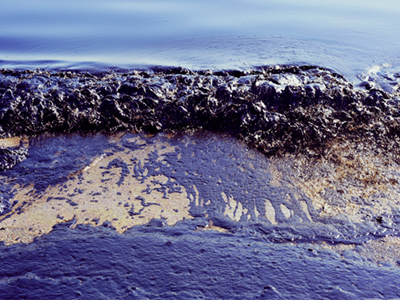In 2013, a New Jersey appellate court temporarily ended the long standing debate of whether a statute of limitations applies to contribution claims brought under the State of New Jersey law which governs liability for the cleanup of environmental contamination, the New Jersey Spill Compensation & Control Act (the “Spill Act”). In Morristown Associates v. Grant Oil Company, the Appellate Division determined that responsible parties which spent funds cleaning up contamination could not recoup any financial contribution from other parties which were also deemed responsible for the contamination if the claim for contribution was brought outside of the six (6) year property damage statute of limitations. In a lengthy, notable and unanimous January 26, 2015, opinion, which tips its hat at every turn to the remedial nature of the Spill Act, the Supreme Court of the State of New Jersey has reversed the decision of the appellate court in Morristown Associates, holding that no statute of limitations applies to such contribution claims.
The Spill Act establishes the liability of any party which has discharged a hazardous substance or “is in any way responsible” for the discharge of a hazardous substance within or upon the lands or waters of the State of New Jersey. N.J.S.A. 58:10-23.11g. This liability is joint and several amongst those parties that are in any way responsible and as such, any one responsible party can be required to shoulder the entire burden. Since the statute is grounded in strict liability, neither “fault” nor negligence are factors, thereby leaving the net it casts over parties which could potentially be deemed responsible very broad. N.J.A.C. 7:1E-1.6. However, any party which conducts a cleanup, whether the cleanup is voluntary or required, may pursue any responsible parties for their fair cleanup costs by asserting a contribution action. N.J.S.A. 58:10-23.11fa(2)(a).
In arriving at its determination that such a contribution claim is not subject to any statute of limitations, the Court reasoned that the plain text of the law (or lack thereof) supported its conclusion, as there is no reference to any statute of limitations within the Spill Act. The Court rejected the argument that the six year statute of limitations barring claims for damage to real property applied. Additionally, the short list of defenses within the statute does not include a limitations period within which a contribution claim must be brought or else be deemed forfeited. More importantly, and citing to the nationally recognized Ventron Corp. opinion which famously stated that “those who poison the land must pay for its cure,” the Court explained that reading a statute of limitations into the law would only frustrate the remedial purpose of it by limiting the reach of remediating parties to recoup any portion of cleanup costs (See State of New Jersey Department of Environmental Protection v. Ventron Corp. 94 N.J. 473, 493 (1983)).
Prior to the first Morristown Associates decision, it was not an uncommon practice for a remediating party to bring a Spill Act contribution claim against the other responsible parties many years after the contamination first occurred and even years after the remediation was fully implemented. Practically speaking, a remediating party’s option to recoup cleanup costs is now kept open forever, unless and until a contribution claim is asserted against any one responsible party. The re-establishment of this legal right could impact real estate transactions involving the purchase and sale of contaminated properties. For example, sellers must be alerted to the possibility of an expensive cost recovery action years after a closing and buyers will have the luxury of time to evaluate the extent of contamination and marshal their evidence before litigating. These are key factors for both parties to consider at the contract negotiation table.
In conclusion, the public policy concept underlying environmental law that “the polluter pays” has been vigorously reinforced by this recent decision. It clearly demonstrates that the contribution provision of the Spill Act will continue to be liberally implemented in the State of New Jersey, thus promoting the spirit of the statute and the cleanup of environmental contamination. (See Morristown Associates v. Grant Oil Company, 220 N.J. 360 (2015)). Although the Morristown Associates opinion is not binding on courts in other states, it is expected to be persuasive guidance where this issue remains open. New Jersey has historically been considered a national leader in environmental law making, given that the New Jersey Spill Act has served as a model for the Comprehensive Environmental Response Compensation & Liability Act (CERCLA), the federal counterpart to the Spill Act. In contrast to New Jersey, however, it is interesting to note that where an environmental contribution claim for remediation only arises under CERCLA, it has already been settled that a six-year limitations period applies.


 Photo: Kostas Koutsaftikis/Shutterstock.com
Photo: Kostas Koutsaftikis/Shutterstock.com



